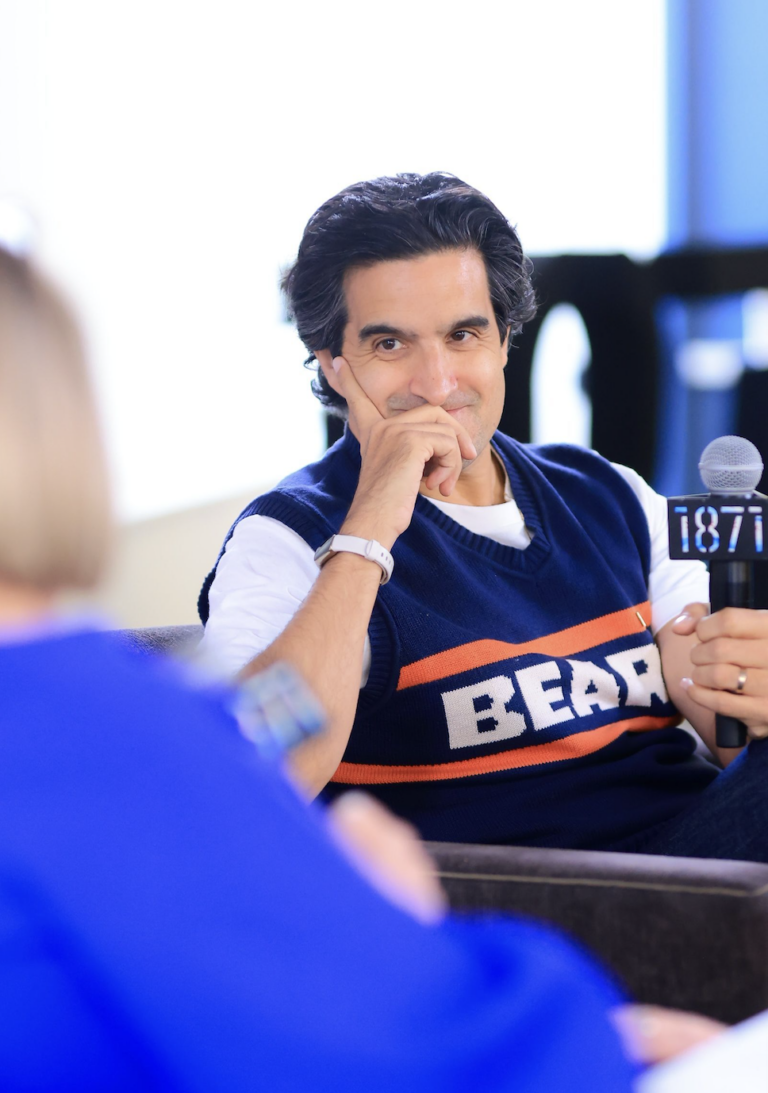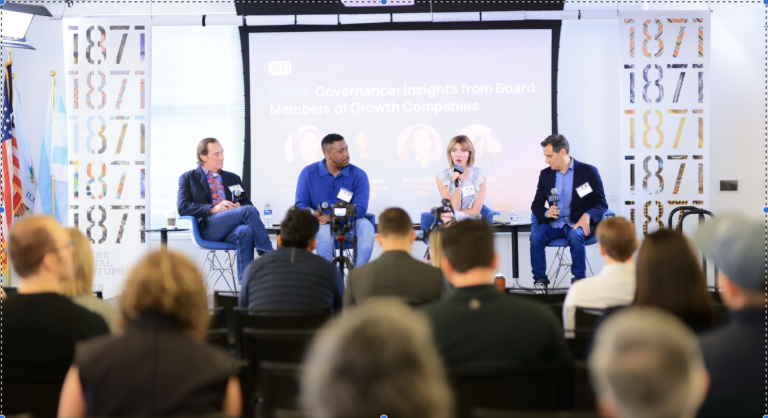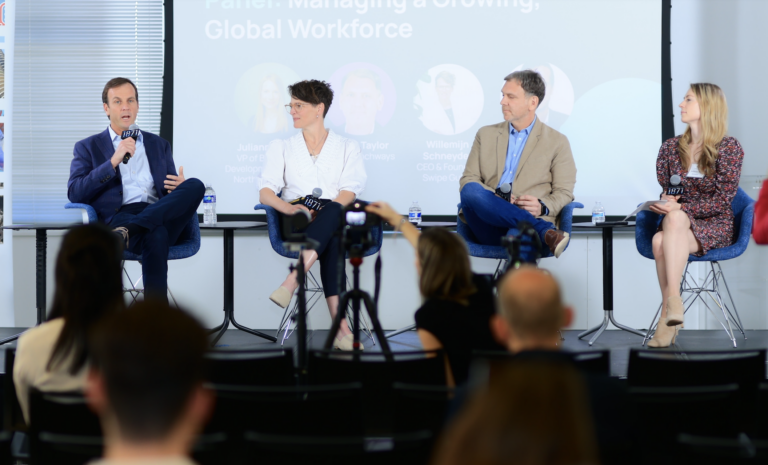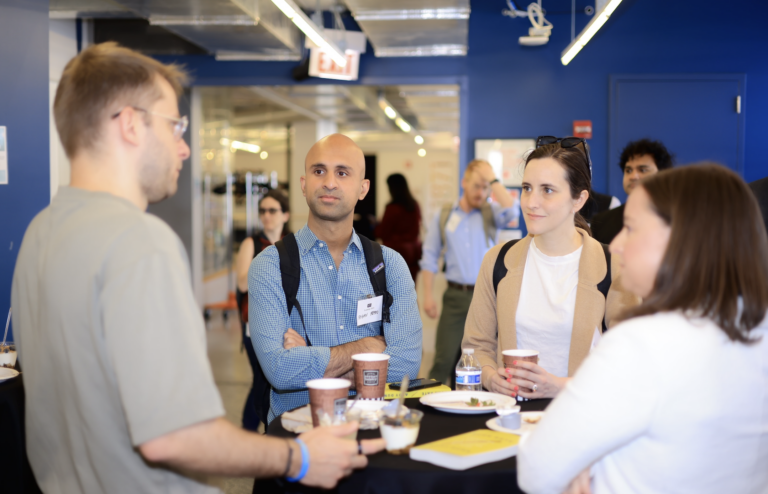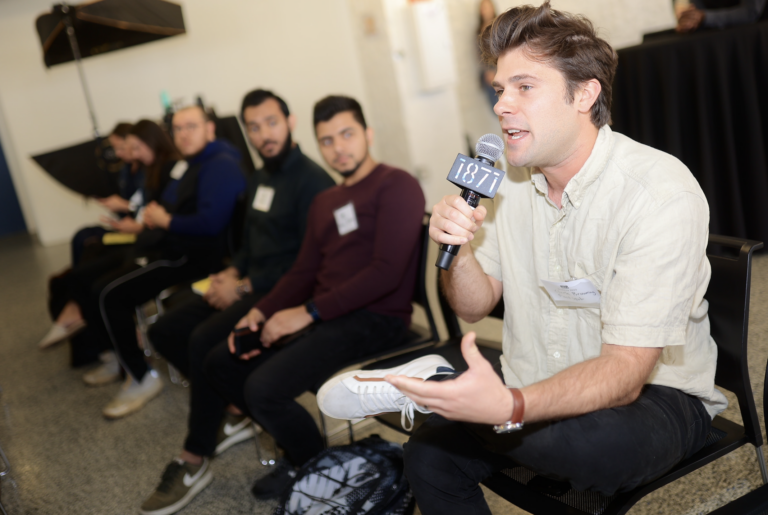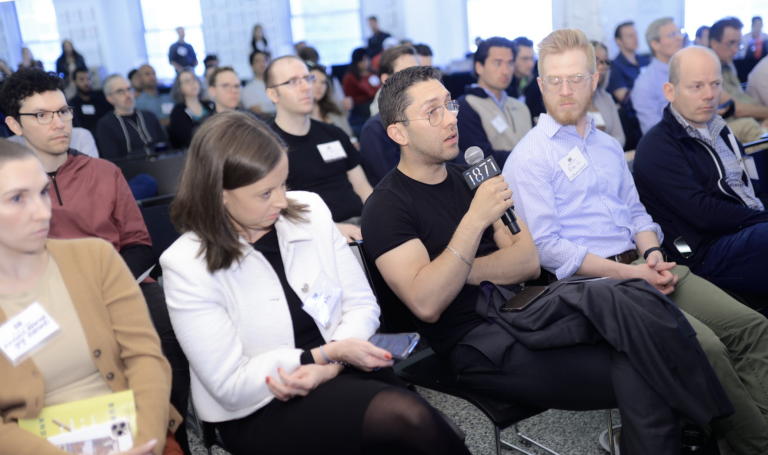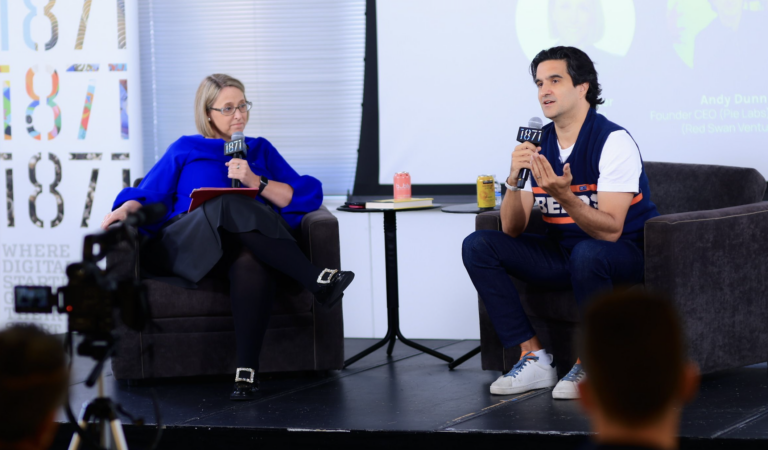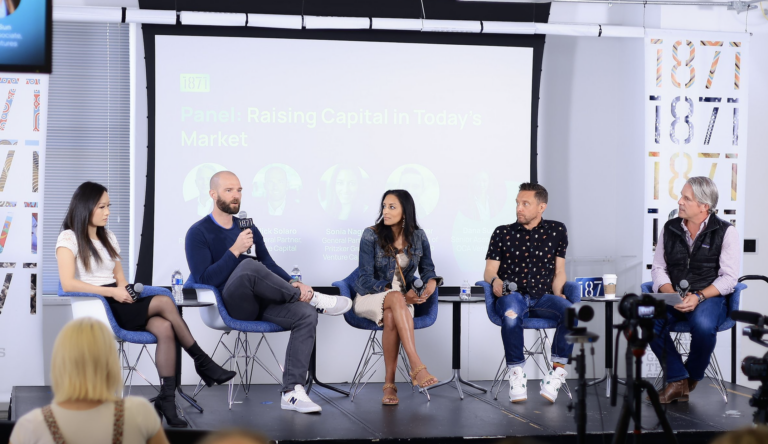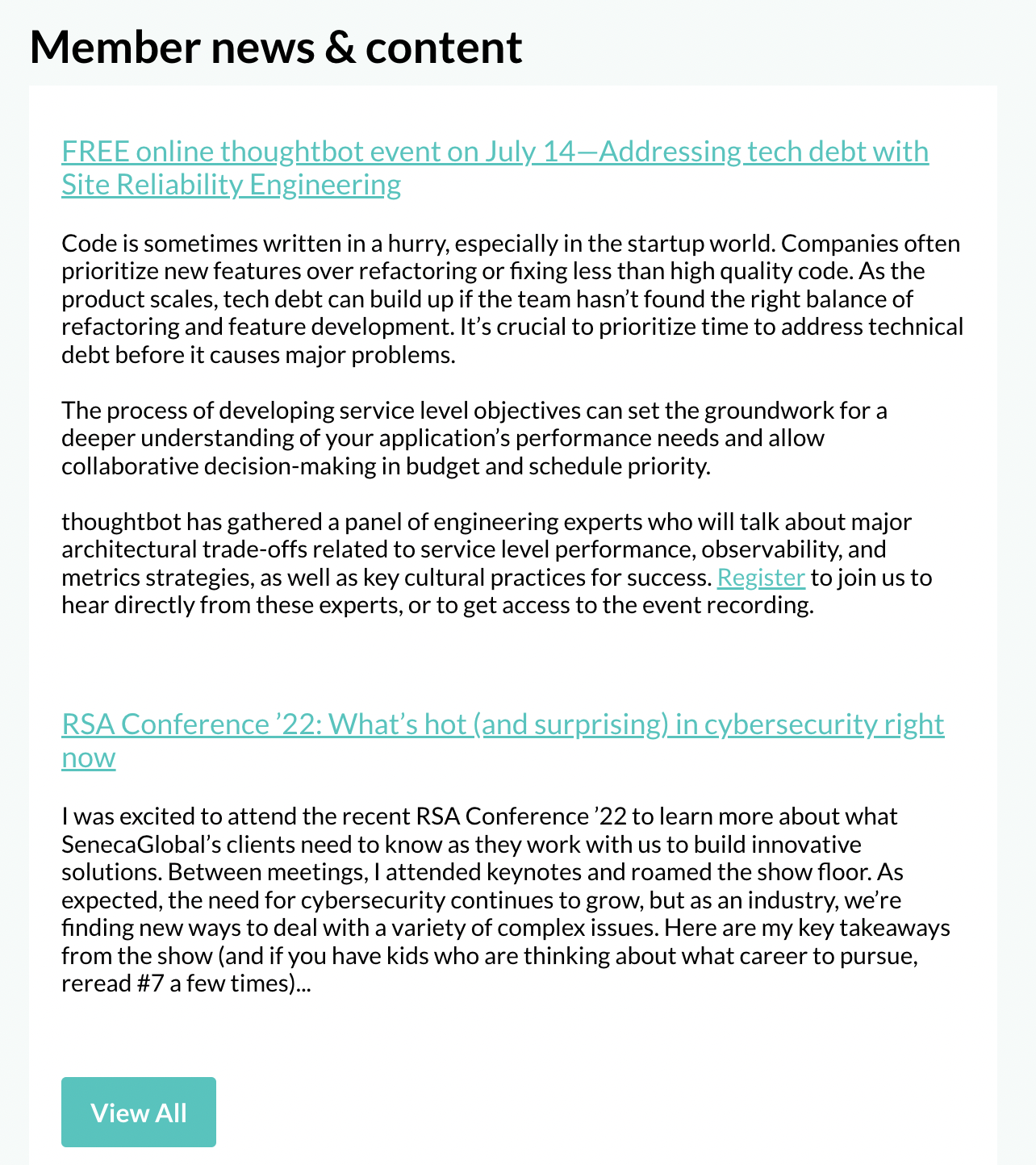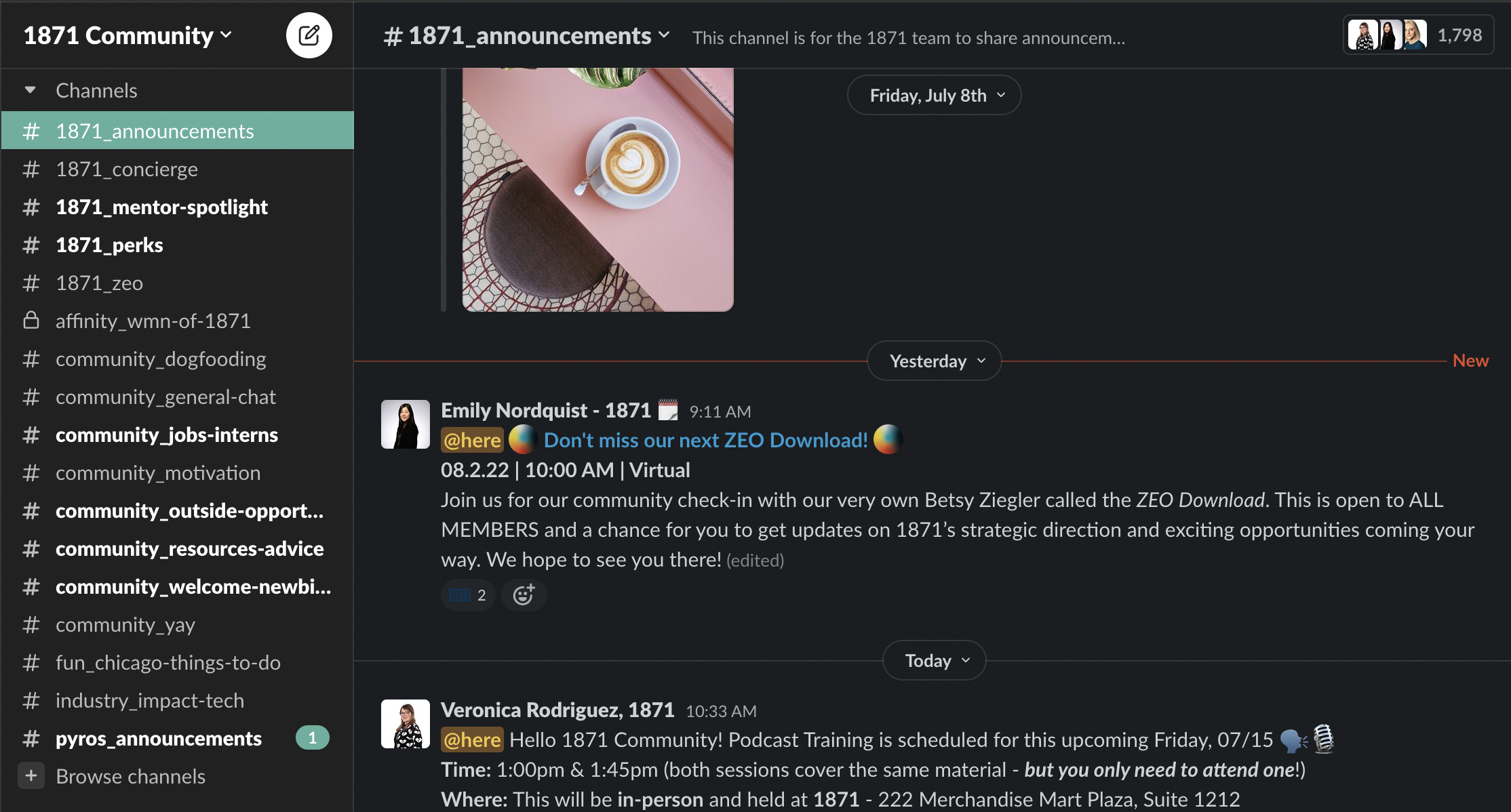Thought Leaders Inspired Positive Change & Growth for Chicago Tech Community at ScaleUp 2023.
On May 10th, thought leaders and growth-scalers from across the Midwest gathered for 1871’s 6th Annual ScaleUp, a half-day dedicated to innovating growth, inspiring change, and connecting peers in the tech community.
This year’s hybrid event featured a legendary lineup of 15 thought leaders who shared incredible insights, personal advice, and best practices for scaling growth companies as they continue in today’s ever-changing tech industry.
“This day is about imparting knowledge, meeting other people, and an opportunity to ask questions while pushing your own thinking,” said 1871 CEO, Betsy Ziegler. “Success for today is what you put into it.”
Without further ado, here are 5 lessons for growth companies to utilize as they continue to grow, scale, and lead their businesses.
Lesson 1: Be agile
Andy Kofoid, current 1871 board member and president of Databricks shared insight on his personal career journey, and the importance of integrating change and pushing for growth across all companies, especially as AI and LLMs continues to evolve in his chat with 1871 CEO Betsy Ziegler, Artificial Intelligence: A Disruptive Force for Growth Companies.
“It took me a long time to build that change-management muscle, and it all depends on the outcome you’re trying to drive to. To survive and thrive, whether you’re a CEO or in any other role in a highly dynamic and innovative environment, you have to think about innovation, thought leadership, and speed responsiveness as the core tenants of how you’re driving the business. You better be ready to change, you can’t be comfortable with stability and routine, because it just won’t fly in this world. If it takes you three-to-six months to do something and you accomplish it in a week, think about how far ahead you’ll be in the game – don’t miss that window of opportunity.” -Andy Kofoid
Lesson 2: Prioritize building relationships & transparency
Moderated by Kevin Willer, partner of Chicago Ventures, panelists Nick Solaro, general partner at Drive Chicago, Sonia Nagar, 1871 board member & general partner at Pritzker Group Venture Capital, Jason Felger, head of operations at Jump Capital, and Dana Sun, senior associate in digital health at OCA Ventures, shared their personal and professional insights on the ups and downs of the current market, and advice on how to continue growing funding in Raising Capital in Today’s Market.
“The pace of venture employment has just slowed down, so it gives you time and it gives VCs time to actually build a relationship. Great companies are still being funded at exceptional valuations and relatively quickly, once you actually establish that relationship.” — Jason Felger
“Most venture funds are experiencing some level of markdown, and we make it a point to communicate that very, very clearly to our LPs. There’s no beating around the bush. We’re very honest and transparent, but we’re also talking about what we are doing to address the problem – not just wallowing in the fact that the market sucks right now.” — Dana Sun
“We want to feel like a partner, so we appreciate having transparency, regular communication, and over communication in the bad times. We’re going to lean harder into the relationships where we feel like people are being good stewards of capital and good partners to us.” — Sonia Nagar
Lesson 3: Invest in culture & community
Moderated by Julianne Cox, vice president of Business Development at Invest Northern Ireland, panelists James Taylor, CEO of Launchways, Willemijn Schneyder, CEO & founder of SwipeGuide, and Cass Baker, president & COO of GainShare, discussed the adaptations their companies made as they transitioned to a virtual workplace from the COVID-19 pandemic. Panelists shared the importance of a community both on screen and in-person in Managing A Growing, Global Workforce.
“There’s two things in mind that organizations have failed – trust and communication. We need a level of transparency with wins and losses. Everyone learns and communicates differently, so the best way is to get to know everyone on an individual level so you can effectively communicate and give them one-on-one attention to make the relationship last.” — James Taylor
“Think about coffee check-ins, think about lunch roulettes, but also think about well organized virtual events that are really focused on building a sense of belonging and community. We were making sure that we have a layer around the work that’s really about driving a sense of community and belonging.” — Willemijn Schneyder
“Everything you say and do is representative of your culture. The most valuable thing we learned along the way was a full mentoring program. We matched up someone senior to them to mentor. You have to plan out effective ways to engage and build relationships because everybody has a different way that they appreciate things, regardless of what the breakdowns are. Give them the space and voice they need (type B), so that type A doesn’t take over the room.” — Cass Baker
Lesson 4: Leverage mentorship from leaders accessible to you
Moderated by Marc Schiffman, president & CEO of SMS Assist, panelists Garry Cooper, CEO of Rheaply, Jeremie Bacon, co-founder of The Forge, and Coco Meers, CEO & co-founder of Equilibria, shared their insights on what makes up a versatile and successful board, and their personal expertise on crafting a well-oiled machine in Governance: Insights from Board Members of Growth Companies.
“I think of my board as my accountability mirror. Of course it’s a helpful discussion and of course you’re relying on them for strategy, counsel, and risk mitigation, but they’re also there to hold you accountable. When you’re alone as a CEO in the deepest darkest place of ‘what do i do now’, take those thoughts to the board and allow yourself to share that hard work of ‘what if’ with them, because that’s why they’re there so you don’t have to be alone.” — Coco Meers
“The framework that I think about is how can everyone in the company support the mission? If you have the power to find board members,have a very specific reason in which you’re getting them on the board, and then to operationalize the reasoning you have. I try to have a thesis on why I want people on the board, and try to extract that value from them.” — Garry Cooper
“It’s important as an operating team and as a CEO of a company to think of your board like you think about your teammates. We need to surround ourselves with the best talent possible at all times for the job to be done to be successful. You don’t want to grow your board bigger than it should be relative to the size of your business. Manage your board like you manage your team in terms of the skillsets, and don’t be afraid to hire, fire, and replace and remove and find better opportunities for your board like you do with your team from time to time.”– Jeremie Bacon
Lesson 5: Your health is #1
Andy Dunn, founder of Red Swan Ventures, founder & CEO of Pie Labs, and author of Burn Rate: Launching a Startup and Losing My Mind, sat down with 1871 CEO Betsy Ziegler for an intimate discussion about his memoir, dedicated to his personal Bipolar disorder diagnosis and mental health struggles. Dunn shared advice for founders, thought leaders, and peers surrounding their mental health and advocating for supporting others.
“The best investment you can make in a pre seed-stage company is in the ability of the founders to endure stress. If you think to yourself ‘ I don’t have any mental health issues’, that’s a mental health issue right there. Because you don’t need a chronic condition to have an acute mental health crisis at some point, life just brings it. The thing about a startup is its ongoing stress, so if you’re a founder or lead teams, be in some form of therapy for three months every two years. You don’t need to be a mental health professional to employ empathy.” — Andy Dunn
Dunn suggests for those looking to learn more skills in understanding how to help others in need of mental health support, is to take the Be There Certificate. This free, self-paced learning experience is designed to increase mental health literacy, and to provide those with knowledge, skills, and confidence to safely support anyone struggling.
View full content playlist from the day and subscribe to upcoming 1871 events & news.
2023 gallery
Join as an 1871 Early Stage Member.
Attend info sessionSubscribe to our ICYMI newsletter.
Share this post:

